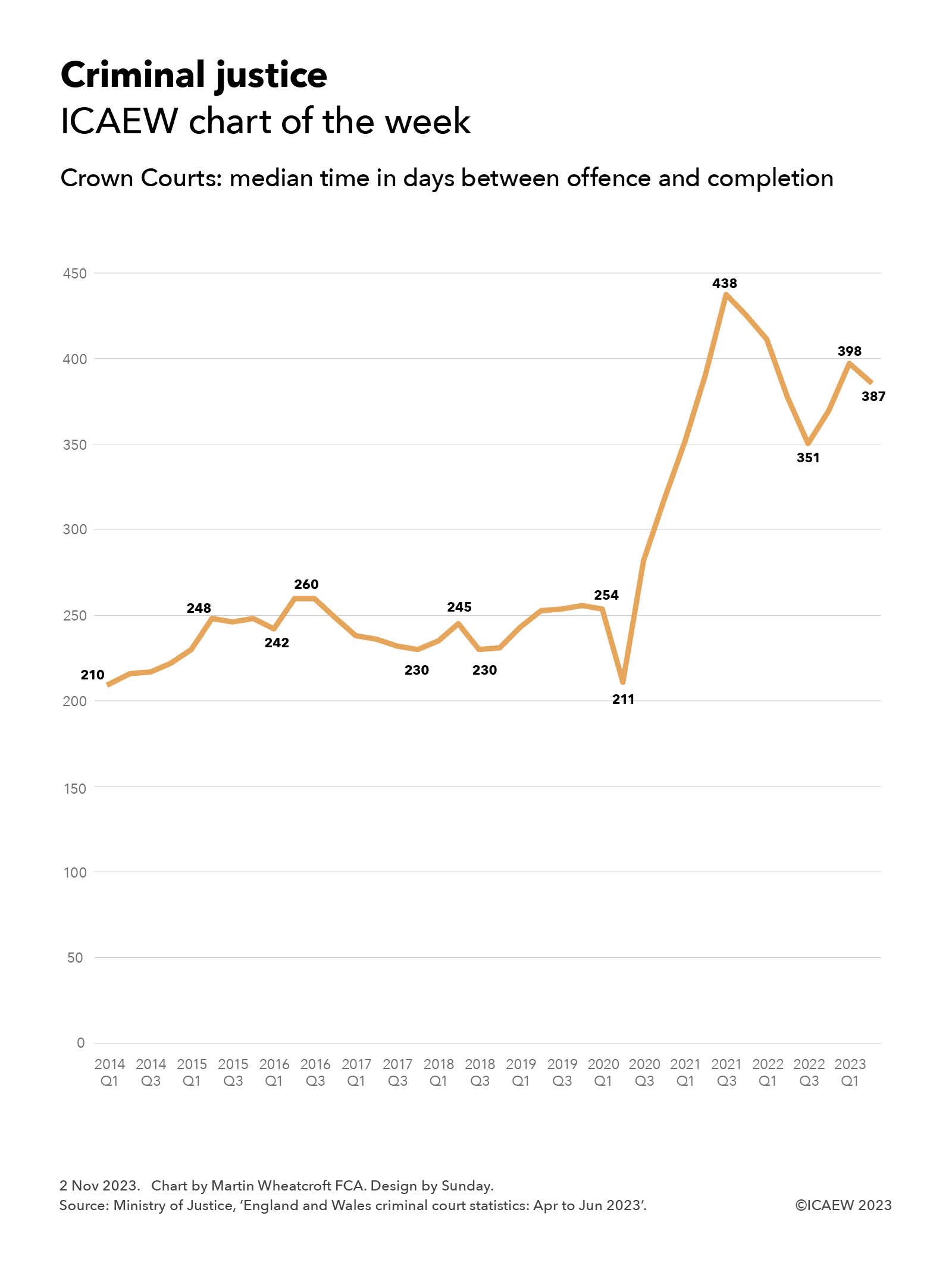
Our chart this week is inspired by the Institute for Government (IfG) and CIPFA Performance Tracker 2023 published on 31 October 2023. Concluding that “government is stuck in a public service doom loop”, IfG and CIPFA together analyse how the performance of key public services has deteriorated in recent years, and not just because of the pandemic.
Our chart (an expanded version of Figure 0.1 in the Performance Tracker) is based on the median time between an offence being committed and completion (conviction, acquittal or dismissal) in Crown Courts in England and Wales, according to Ministry of Justice statistics for the criminal justice system up to June 2023.
This is a key metric in understanding how efficient the police, prosecutors and courts together are in bringing criminals to justice, as well as an indicator of just how long the lives of victims, their families, witnesses and defendants are being put on hold while cases work their way through the system.
Back in the first quarter of 2014, the median time from offence to completion was 210 days (6.9 months). This trended up to reach 248 days (8.2 months) in 2015 Q2, before hovering around that level in the years before the pandemic, with our chart highlighting how it fell to 242 in 2016 Q1, rose to 260 in 2016 Q1 and Q2, fell to 230 in 2017 Q4, rose to 245 in 2018 Q2, back to 230 the following quarter, before rising to 254 days (8.4 months) in the first quarter of 2020 at the start of the pandemic.
The median fell to 211 days in 2020 Q2 as more complex cases were deferred during the first lockdown, increasing sharply to reach a peak of 438 days (14.4 months) by the third quarter of 2021. The time taken improved to 351 days (11.5 months) by the third quarter of 2022 as the courts started to clear the backlog, but then increased to 398 days (13.1 months) in the first quarter of 2023. The most recent data is for the second quarter, with a median average time taken of 387 (12.7 months) for cases completing in that quarter.
While there are inevitably going to be a number of complex criminal cases that are going to take a long time to be investigated and then come to trial, for the median average case to be taking more than a year to complete its journey through the justice system in England and Wales is not a good sign.
Read more:



